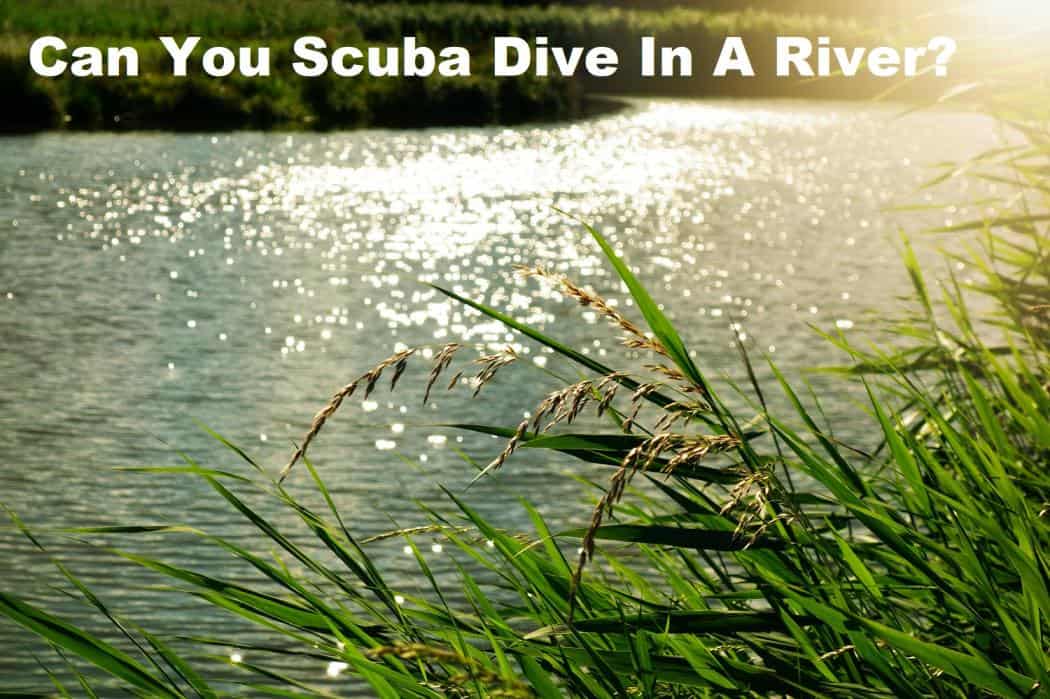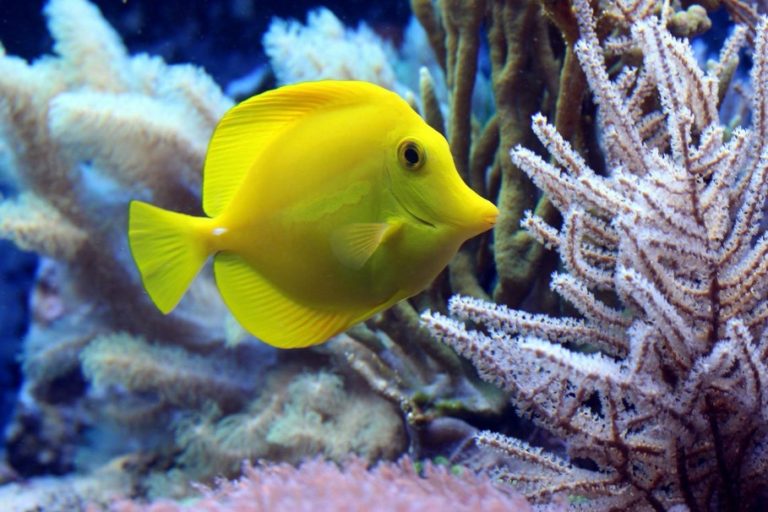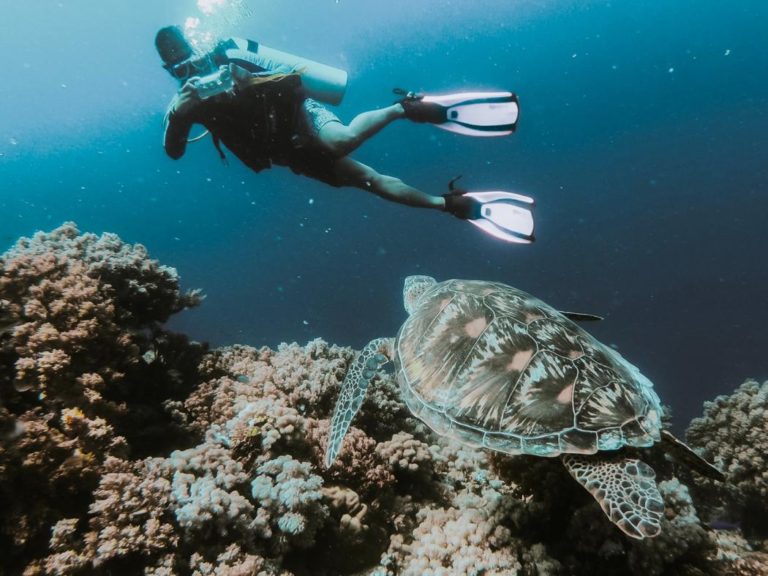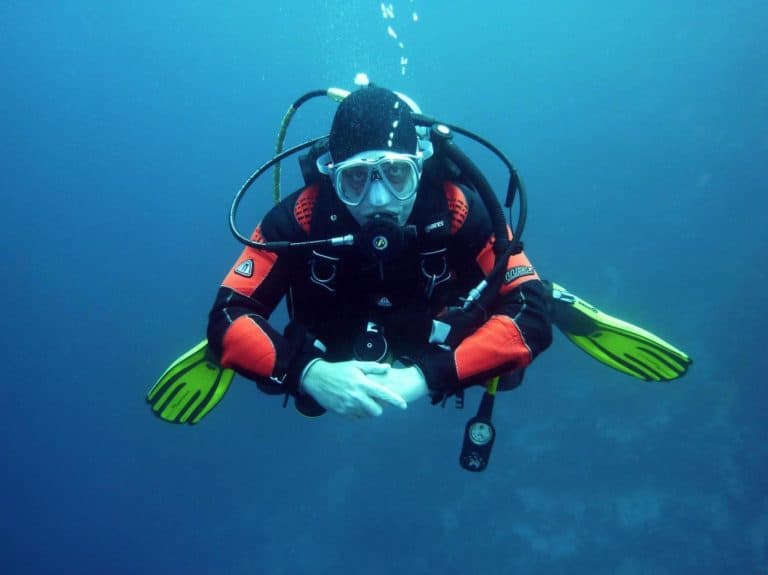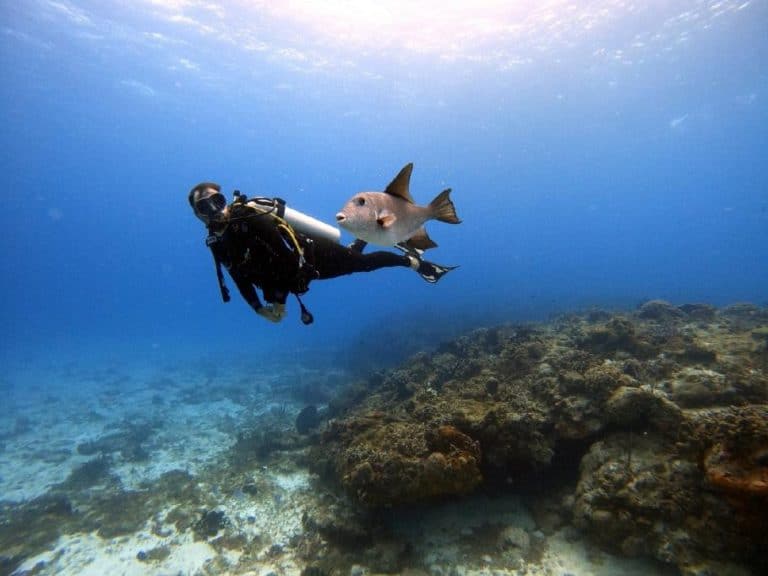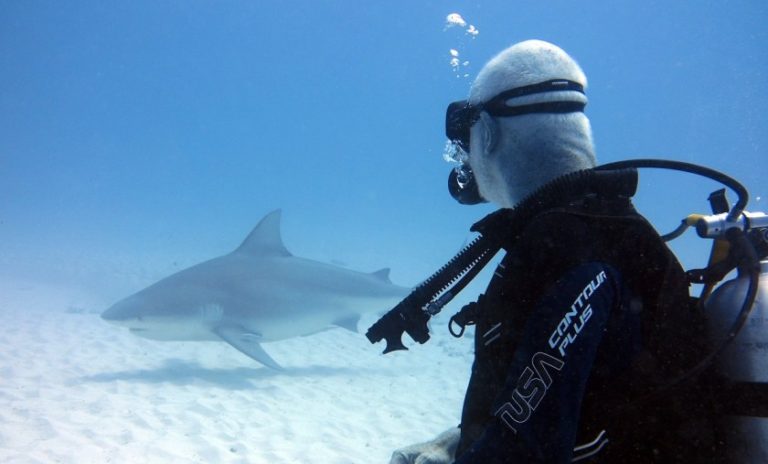Can You Scuba Dive In A River?
When you think about scuba diving, a river is the last place that comes to mind. Many people only think about scuba diving in the sea, ocean, or lake, maybe to explore a famous cave or wreck. River diving isn’t very popular and many people imagine there isn’t a lot to see in a river anyway but can you scuba dive in a river?
The simplest answer is Yes and No. Depending on the location of the river divers may require a diving permit from park or city officials to do so. If the river is located within a city then it may be illegal to scuba dive in it due to other boat activities going on. Diving in a river under federal protection such as a river in a park is quite possible if the divers follow the requirements and obtain a permit first.
Besides getting a diving permit there are many other reasons why most divers don’t go scuba diving in rivers. These include pollution, poor visibility, few to no marine life to witness, shallow depths of rivers, and swift currents among many others.
If you are in a landlocked area, a river may be the best option to get some diving practice. Some divers go river diving to collect treasures on the riverbeds. Before you consider this it’s important to weigh all the risks involved and see if it is really worth it.
In the next few paragraphs, I will discuss diving in rivers, is it illegal, what are the requirements for river diving and so much more.
Keep reading to learn more!
#Verzasca #River. #Diving in crystal clear #water of Verzasca river in #Ticino – #Switzerland pic.twitter.com/c870c0GUOI
— Learn New💎 (@TwitLearnNew) December 20, 2017
Is It Illegal To Scuba Dive In A River?
This will depend on the location of the river and if it’s under federal protection or not.
Some rivers run through major cities where other boat activities are ongoing. In most cases diving, swimming, surfing, and scuba diving are prohibited within the city. This is because these activities not only put you at risk of injury but you could also injure others in the process.
Outside the city, the regulations around the river are lesser but again will differ from one location to the other.
In addition, where rivers pass through a city, with boat activity, diving in this area puts you at risk of getting hit by boat anchors and propellers. The regulations are put in place to protect the users of the rivers and you as a scuba diver.
Away from the cities, can you scuba dive in rivers within a park?
Parks are under the protection and supervision of park officials. To scuba dive in these rivers, scuba divers need to get a written permit from the park officials or superintendent.
In addition, the divers have to undergo a briefing with the officials. During this briefing, divers get an idea of what to expect, the best diving spot, and what is expected from them, and also made aware of the risks involved.
If caught diving in these protected areas without proper documentation, the park officials can charge you or get a fine. Again the charges or action taken against illegal divers will vary from one state to the other.
Scuba diving in local rivers may not be subject to many regulations or rules. As a matter of fact, no one will ask you if they found you scuba diving in your local river. However, this doesn’t mean you should do it. There are many risks involved in river diving especially if you have no proper training and equipment.
As a general rule of thumb, you’ll need to know if the river you plan on diving in is protected or regulated and what permits are required before scuba diving.
READ MORE: Is Scuba Diving Scary
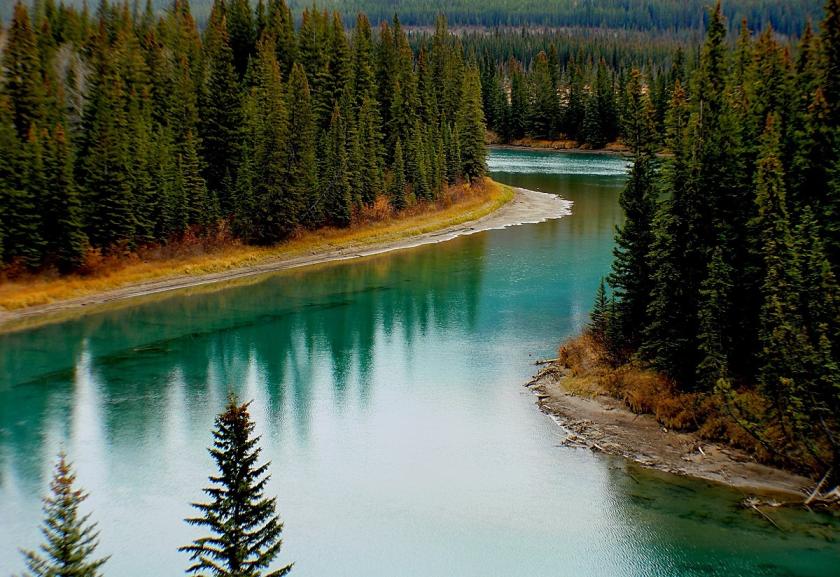
Can You Scuba Dive In Rivers
Yes, you can scuba dive in rivers but before doing so, it’s wise to familiarize yourself with the river. What animals are in the river, the depth, the currents, the best time/season to go diving, and of course the requirements.
The Rainbow River in Florida is among the top river diving spots in America. The clear water and temperatures make it ideal for scuba diving. In addition, the river has a good depth of about 25 ft. and good visibility making it ideal for diving.
When traveling to Egypt there are many dive spots to explore across the country. You can find some of the best wreck diving spots in the country. While in the county you may wonder if you can scuba dive in the Nile River.
Scuba diving in the world’s longest river –River Nile- is both exciting and risky. The mighty crocodiles found in the river stop you from enjoying your dive.
Similarly, the mighty Amazon River is home to different species of fish and other animals. You will find some of the rarest fish on the planet and in big sizes. As much as many would love to go exploring the river not everyone would be brave enough to be close to the rare spices for a long time.
Always familiarize yourself with park and state rules before scuba diving in the rivers. This is an example of rules for scuba divers in Florida.
What a mystic place #padi #scuba #diving #verzasca #switzerland #river #freshwater #current #dive #underwater pic.twitter.com/PfxJoDlMIr
— Mad Lips (@mad_lips34) September 12, 2015
How to Scuba Dive in A River
As mentioned above, there are important things to consider before scuba diving in a river.
Some aspects to consider include the animals found in the river. If you are in new locations, research or ask locals what animals are found in the river. You want to stay safe and not risk an attack or worse death by one of the river animals.
Next, it’s important to research dive spots along the river if there are any. A local diving instructor will provide a guide to the best diving spots and diving tips. Diving without proper planning or information can result in trapped or lost divers.
Upon research, you’ll notice that many river divers prefer diving in the winter season. During this time the water is calm and clear making exploration easier.
If diving during the winter season, wearing the proper diving gear is important to avoid freezing to death.
When diving in preserved or protected rivers, the park officials brief divers on what to expect and what is expected from them.
While diving in a protected area, the divers must have a diver down flag and must stay within 50 -100 meters of the flag. This helps keep the divers safe from other people using the river.
To scuba dive in a river you’ll need:
- A diving permit
- A wetsuit or a drysuit
- Open water diving skills
- Rescue diving skills/emergency contact person
- Diver down flag
- Diving spirit
My #boys #scuba #diving in the #Tweed #River #Tweed #Heads #New #South #Wales #Australia pic.twitter.com/COjrVIlIdg
— Jodii (@jojogidget) May 8, 2015
READ MORE: Is It Illegal to Scuba Dive Alone
Do You Need Certification to Dive in A River
Yes, certification is important before diving in a river. River diving is more intense compared to diving in other open waters.
There are risks involved in both open water and river diving. However, the risks involved in river diving a higher especially if you have no idea how to respond or handle them.
Divers planning on river diving must have an open water diving certification and also demonstrate having these skills.
It’s also important to have rescue diver training or have a rescue diver with you when diving in a river.
One of the major risks in river diving is the swift currents. These can be overpowering making it impossible to dive against or even come out of. In a river, swift currents may drift you towards boats causing injuries or you could end up at a waterfall with rocks and a lot of water that could carry you further down the river.
Unlike the seabed where divers can anchor in case of strong currents, the river bed sand or silt is very soft making it impossible to anchor onto.
Having river diving training and skill will help the divers get out of such difficult situations.
Oh, how i wish for a big fat fish! #verzasca #river #ticino#switzerland #padi #diving #scuba #underwater pic.twitter.com/15fcLWdYIQ
— Mad Lips (@mad_lips34) September 14, 2015
Risks Involved In River Diving
There are various risks involved in river diving. Many of which contribute to less popularity among scuba divers.
The risks include:
- Swift currents
- Low visibility in murky water
- High risk of getting entangled in fishing lines
- Soft riverbeds make it impossible to anchor into when there are strong currents
- High pollution from industrial or domestic waste
- Dangerous animals such as crocodiles, alligators and hippos among others
- High risk of infection from parasites and other pathogens
- Higher risk of injury from fallen tree trunks, branches, and junk dumped into the river
- Shallow depths increase the risk of collision with boats, kayakers, fishing rods, and surfers
- Getting stuck in mud or among the junk in the riverbed.
😍🌊🤿🐟📸 #scubadiving #scuba #diving #Manatee #underwater #photography #PictureOfTheDay #picoftheday #underwaterphotography #OLYMPUS #florida #crystalriver #river pic.twitter.com/lPf3yFFney
— Scuba Selfies (@AmineLounes4) March 2, 2020
Safety Tips When Diving In River
If you must scuba dive in a river it’s important to take all the safety measures into consideration.
- Always prepare for the dive and dive the plan.
- Have rescue diver training or a rescue diver with you
- Only dive when the waters are calm and clear, avoid diving in murky waters
- Always have a diver down flag raised at the highest point on the dive boat when diving
- Divers should stay within the recommended radius from the diver down flag
- Wear the correct diving gear depending on the diving location (wetsuit or drysuit)
- Always consult the park officials before diving in park rivers
- Don’t dive in city rivers and any other prohibited rivers
- Consult your doctor before diving in rivers especially if you have sensitive skin or the water is known to have parasites.
- Always dive with a buddy
- Avoid drugs and alcohol before diving
- Check your diving gear and equipment before diving
- Learn and master drysuit diving
READ MORE: Can You Scuba Dive in a Lake?
Parting Words
We’ve seen that you can go scuba diving in a river but there are risks involved and requirements depending on the location of the river.
Remember that you won’t experience a wide variety of marine life in a river as you would when diving in an ocean. If you are looking to explore marine life then a river isn’t the best place to do that.
Always research the river first before diving it, get the necessary permits if required, and never go diving alone. While a river may seem like a manageable area, swift currents can be unforgiving if you have no idea of what to do when this happens.
Mastering how to dive in a drysuit is important, especially when diving in winter or in cold rivers. With a drysuit, you can keep your skin protected from the river water especially if you have sensitive skin. In addition, a drysuit allows the diver to layer up beneath the suit providing more insulation.
I hope this article answered the question can you go scuba diving in a river. Stay safe and happy diving.

